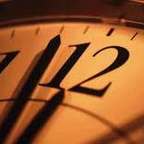
The History of England
Summary: A concise history of England in a weekly podcast. We follow English history all the way from the Anglo Saxon invasions at the start of the 6th Century.
- Visit Website
- RSS
- Artist: David Crowther
- Copyright: David Crowther
Podcasts:
I agree that it's a bit out of phase but you don't loo a gift horse in the mouth. David McClain here gives us all a fascinating hour on some hack called William Shakespeare who wrote some plays in the 16th/17th Century.
Sorry no podcast this week; next week, a wonderful guest episode on Shakespeare by David McClain, the week after the battle of Poitiers - and that could well be it for the rest of the year. If so, ooops, sorry about that. Anyway, we'll see - and enjoy the guest episode next week.
In 1354 - 1355 Edward and his court wavered between optimism that a negotiated settlement was within their grasp - and determination to continue to prosecute the war. The Treaty of Guines looked to have given Edward more than he could have hoped for - Aquitaine, Anjou and Calais in return for peace and the renunciation of his claims. But in the end it was to be war again. The Black Prince started things off with the Great Chevaucee
The period between 1347 and 1353 was one of low level war and violence; punctuated by more or less effective truces. But even the truces don't stop the low level local violence that saw a creeping chaos in areas of France. Meanwhile at home, Edward's parliaments of 1351-3 introduced a range of legislation and saw the Commons become a more unified coherent unit.
The theory runs that the Black Death transformed medieval society. With a dramatic shortage of labour, the English peasant was able to demand whatever wages and terms they wanted - liberating hte English from serfdom. Is this true? And what other impacts did the Black Death have on the medieval mind.
In 1348 a 14 year old royal princess, Joan, set out from Portsmouth to marry Pedro of Castile. Her route went by Bordeaux, and with the massive trousseau she carried - enough to fill an entire ship - she would have expected a comfortable journey. But Joan never arrived.
By the end of the march across Normandy in 1346, Edward had accepted that he was not going to be able to hold French territory. But he had a clear objective - Calais. Philip meanwhile now hoped that the Scots would invade an empty, defenceless England and Edward would have to abandon his plans and rush back home.
In 1346 Edward invaded finally launched the invasion he had hoped to lead in 1345. The target was Normandy a devastating raid through northern France, a glorious victory in battle followed by - well who knows. There followed a tense camapign that tettered on the edge of disaster until the two armies finally met outside the village of Crecy on 26th August 1346
Edward had little intention of keeping the truce for long. After a brief period of reconstruction, he repudiated the truce a year early. And so enters one of the most attractive figures of the hundred years war - Henry of Grosmont, the Earl of Derby, the Earl of Lancaster. His campaign in 1345 finally proves that the English can win. acast.com/privacy
1341 saw a serious political crisis - Edward returned home determined to put his English administration, parliament and particularly Archbishop in their places. In fact it's Edward who is forced to back down and accept a punitive legislative programme to rebuild his partnership with the political community. With a truce in place, Edward was saved from a life of fun and luxury by the start of civil war with a disputed succession to the Duchy of Brittany.
In 1340 against all the odds - of numbers and quality - Edward defeated Philip VIth's Great Army of the Sea at Sluys. The impact on morale, English and French was dramatic. But none the less Edward's campaign still failed at the walls of Tournai, and his problems of debt and discordant allies rose like a flood around him. acast.com/privacy
Edward faced a weary time, a weary time. His allies demanded money, he had none to give them. So they refused to fight, while the French closed in on Gascony and raided the south coast of England. Edward handed out impossible orders, sacked perfectly competent ministers and became increasingly isolated from his parliament, magnates and ministers. Against this background, in the Friday market at Ghent in 1340, Edward declared himself king of France.
This week, a bit of a scene setter; Edward and the develpment of consent from the commons in his parliaments, the theatres of the 100 years war ahead - and the revolt in Flanders led by Jacques Artevelde.
The Story of the early 14th Century papacy and their exile in Avignon - a guest episode from Stephen Guerra
Edward had traditionally received much of the blame before the start of the Hundred Years War. But in fact there were many reasons why France and England ended up going to war, and many of them relate to French aggression and support for the Scots. And in fact the catalyst for war is the declaration by Philip VI that he has removed the Duke of Aquitaine from his lands - i.e. Edward. This is as straightforward a declaration of war as you are ever likely to see. For information regarding your data privacy, visit acast.com/privacy